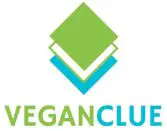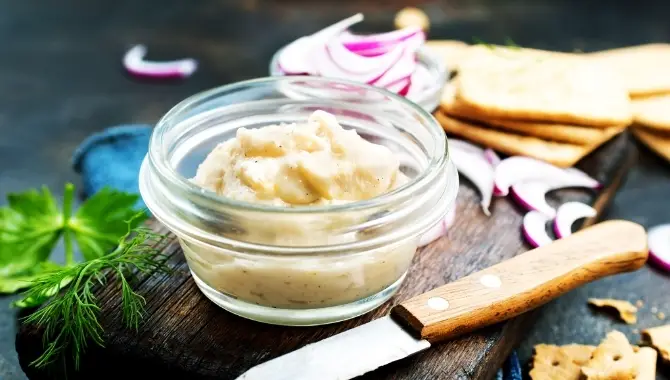There are many different types of fats, acquired from both animal and plant sources, which are used in the food industry. As a result, determining what is or isn’t vegan-friendly can seem daunting.
Lard, for starters, is used as a cooking fat or for shortening in many cuisines and baked goods. The fact that it’s used for shortening can be confusing to vegans because the term rarely refers to lard or butter, but is more closely related to vegetable shortenings like margarine. Additionally, some people are not familiar with the word ‘lard’ and might wonder if it’s vegan when they find it on labels.
So, is lard vegan? No, it’s not. This is for the simple fact that it’s an animal by-product and as we all know veganism involves abstaining from the use of animal products and by-products. Lard is obtained by rendering the fatty tissue of the pig and has a number of applications in the food industry.
Lard is a very common ingredient in many recipes and many chefs price it over other types of shortenings in baking. As such, you have to be careful what you consume outside to ensure it’s in line with your vegan lifestyle. The good news is there are so many fats that are vegan friendly that you can use in place of lard. Many manufacturers are also opting for plant-based fats as they are more economical; plus, they want to cater to the growing vegan community. Read on to find out why lard is not suitable for a 100% plant-based diet and what you can use instead.
Why Lard Is Not Vegan-Friendly
As mentioned earlier, people adopt a plant-based lifestyle for different reasons. The traditional vegans do it for ethical reasons as a nod for animal welfare while others do it to protect the environment and/or for health reasons. So, how is lard not a suitable ingredient for all vegans?
Ethical concerns
Lard is an animal by-product, meaning pigs have to be killed for you to get lard. Ethical vegans object to the killing of animals solely because people enjoy their products. The worldwide pork industry is quite massive, raising and killing millions of pigs every year. Over three-quarters of these pigs are raised in factory farms, which are pure hell for them. They spend all their life in crowded indoor spaces never to bask in the sun, run across sprawling pastures, breathe fresh air, or do other things that are natural to them.
The female pigs are repeatedly impregnated to give birth to more piglets that are then taken away from their mothers almost immediately after birth, causing huge distress to both the mothers and the piglets. Pigs tend to get aggressive and violent when housed in stressful and crowded environments. Since this is the key to maximizing revenue, producers have their needle teeth and tails cut off and the males are castrated shortly after birth to reduce the chances of attacking one another and causing mortality.
Pigs are slaughtered at after just six months when their natural life is an average of 10-15 years. A typical slaughterhouse kills about 1,000 pigs every hour, making it impossible to even give them a humane, painless death.
You can see how consuming lard directly contributes to the mistreatment of these animals.
Environmental concerns
A pig farm produces a lot of faecal waste that often spills into nearby water sources, killing existing ecosystems. Ammonia from pig urine is very dangerous to the pigs and humans alike. The fumes are so toxic that people living near a pig barn are at a high risk of suffering from a variety of health problems.
To get around water pollution, factory farms usually take tons of faeces and urine and turn them into liquid waste, which is then sprayed into the air and inhaled by people who live nearby.
Health concerns
Lard is loaded with cholesterol and consuming it will increase your chances of becoming overweight or obese and developing life-threatening diseases such as heart disease and diabetes. It gets worse when you consume industrially-produced lard as it’s often hydrogenated to make it shelf-stable. Now you have a product with cholesterol, saturated fat, and Trans fats. Saturated fat raises the bad cholesterol while lowering the good cholesterol and is often associated with heart disease, hypertension, diabetes, and obesity.
I mean, if the cruelty being done on pigs just so you can get lard does not move you, then perhaps your own health should motivate you to stay clear of lard.
Beware! Lard Use in Otherwise Vegan Food
Becoming a vegan is all about embracing a plant-based diet but there are so many foods that seem acceptable to vegans but are actually far from it. Lard is found in many unsuspecting vegan foods, making them unsuitable for vegans. For this reason, it’s important to read the ingredients label of every food before buying to ensure it’s entirely vegan-friendly. Look out for the word tallow as it’s just a fancy and sneaky way manufacturers label their products with lard. Here are some of the most common lard use in otherwise vegan foods:
Refried beans
Refried beans are just plant-based beans that have been cooked and mashed, which pretty much seems vegan-friendly. Unfortunately, most restaurants that offer this dish cook them in lard or bacon drippings. The commercially made ones use vegetable fat, lard, or bacon drippings to achieve the paste-like texture, so check the ingredient list to ensure no animal product is used.
Cake mix
Lard or other animal fat is a common ingredient in dry, boxed cake mixes. Again, check the ingredient list to know what is contained in your cake mix, or simply make vegan-friendly options at home.
French fries
French fries are basically potatoes deep-fried in oil. Most restaurants fry them in vegetable fat, making them vegan-friendly but beware of those that have been deep-fried in lard or other animal fat.
Vegan Alternatives to Lard
Now that you know lard is a no-no for vegans, what can you use instead? Well, there are several vegan-friendly lard substitutes available for you to cook or fry your foods, as well as give a moist and flaky texture to baked goods. This includes:
Vegetable shortening
This is the best and most common substitute for lard. It’s made from palm, soybean, or vegetable oil and contains the same fat and cholesterol levels found in lard without any animal products, therefore suitable for vegan diets. It also has a high smoke point that makes it suitable for frying or other forms of high-heat cooking. The ideal ratio for substituting is 1:1, meaning if your original dish required 1 cup of lard, you can substitute it with a cup of vegetable shortening.
Coconut oil
Coconut oil also has a high smoke point, making it suitable for recipes that require frying or high-heat cooking. Similar to vegetable shortening, it can be used in the same ratio as lard. Note that coconut oil leaves a subtle coconut flavour that may not be suitable for everyone.
Olive oil
This plant-based substitute for lard works well in baking. Its smoke point is relatively low so you may want to consider the other alternatives for frying. Olive oil also adds a mild taste of olives to your dishes so it may not work for everyone. Substitute using the same amounts as the recipe calls for.
Avocado or mashed banana
You can use avocado or mashed banana instead of lard in some baked goods to give a moist texture without the fat and cholesterol, of course. These substitutes work best when baking muffins, cookies, bread or cakes although the result might not be as perfect. Use half the quantity of fruit as you would lard.
What to Consider When Choosing Lard Substitutes
As you can see, there are plenty of vegan-friendly substitutes for lard. If you are wondering which one is the best, it varies depending on one’s preference, needs, budget, and availability among other factors. Be sure to get creative and experiment with different vegan fats to see what works best for you. After all, good food is all about personal preferences and there isn’t one vegan alternative to lard that will be suitable for all.
Since lard has high-fat content, you want to get the fat content right with your vegan-friendly choice. Any difference in fat content is likely to have an impact on your recipe. For instance, fat is what makes pie crusts nice and fluffy, so if you use an alternative with less fat content, your end product might not be as perfect.
Well, that’s it for lard and its non-vegan status; I hope you have learned a thing or two that will help you keep the vegan journey going.
Welcome to VeganClue - My name is Robert Van De Ville and together with my team we spent hundreds of hours researching the most relevant topics for Vegans and non yet Vegans. Are you looking for more information about Veganism, animal welfare, diet, health, and environmental benefits of the Vegan lifestyle? You are in the right place! Enjoy the site.


